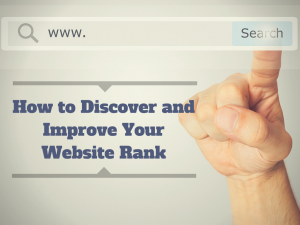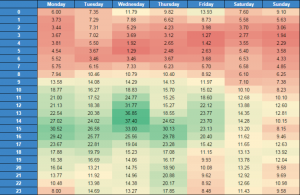There was a time when you couldn’t get a chicken soup recipe while sitting on the toilet. Strange but true! It used to be that you asked your mom, or your friends, a book, or your local librarian for information. Today, instead of picking up the phone, everyone from bearded urban millennials to grandmas and dairy farmers turn to one place above all others: the Internet. How do people search? Who gets clicked? Why does search matter so much?
There is limitless information and entertainment, available (just about) wherever you are and available whenever you want it. It’s no surprise that lightning-fast Google has replaced the Dewey Decimal System as the primary means for finding out what you need to know.
SEO: the difference between being seen or ignored
But in this vast sea of cyber information, it’s easy for the websites of many businesses and individuals to get lost or outranked by bigger players. It’s the reason SEO (search engine optimization) is a hot topic. SEO is almost always the difference between being seen and being ignored online.
But you don’t need a specialized degree to understand why sites like Google and Bing rank their results the way they do. Getting the best of your business to appear in the top of search results starts by learning how people use search engines, and then tailoring your website’s information in a way that it’s most likely to reach a searcher’s eyes (hint: it’s how we crafted this article, from bare bones to final draft).
What Search Engines Do
People want their search results to be as relevant and reliable as possible, so search engines work to ensure that the answer to a user’s search query fits the bill. More information isn’t always better, and there’s usually a good reason for why certain results appear farther down on the list than others (not always though).

Search engines use something called algorithms to rate and rank websites within any given list of search results. The better the ranking, the closer to the top of the search results the site will appear.
Which Search Engine Gets the Most Use?
Most of us (a whopping 64% as of October 2016) head straight to Google when we want to know something. Bing, the next most popular search engine, is the engine of choice for 22% of users.

If you’re just learning the basics of SEO, it makes sense to start by focusing on ranking high with Google to capture the highest possible number of leads.
A caveat: you’ll never be able to know all of the factors at play (and Google doesn’t want you to, since there will always be some who would exploit the system). It’s also unlikely you will be able to keep up with the changing factors all the time because Google changes it’s search algorithm almost daily. But having a basic idea about what Google is looking for will help you get on the first page of results.
How People Use Search Engines
You may have been taught to put your search queries in quotes, or you may be more of a “voice command” searcher. While everyone has a different search style, there are some basic rules that dictate how we approach things when we’re looking for information.
Full or Part Phrase Searchers
According to research from Blue Nile, about half of searchers use full phrases (i.e. “How do I cook a lasagna”), while the other half use fragments (“how cook lasagna”).
However, nobody wants to reach just half the people searching for their information, so creating a page that hits on a variety of relevant keywords and search terms is necessary.
There are typically three types of queries that people make:
- “Do” queries (see lasagna example above)
- “Go” queries (when they want to reach a specific page)
- “Know” queries (when they want detailed information on a specific topic)
In order for your page to reach the people who you are looking for, it needs to be composed to be relevant for the specific category of query the person entered. To make this targeted approach, it’s important to get a full grasp on what your information is really delivering — or the message you want it to deliver.
Who Gets Clicked On
The first page of search results are coveted. It’s the beachside real estate in the world of SEO, and everyone wants to live there. Some beaches are better than others because of the commercial aspects of top rankings.
94% of people scroll right past the paid ads
There are no shortcuts to that spot, not even through paid advertising. A 2011 study based on 28 millions users and 1.4 billion searches in the UK found that 94% of people scroll right past the paid ads, ignoring them in favor of the natural results.
People choose the 3 organic results 68% of the time
The study also found that users chose one of the top three organic search results 68% of the time. For the pages that don’t hold one of those three coveted spots, it means significantly less traffic.
It’s not always enough to be on the front page. You have to be there based on merit rather than through ad placement, and you have to rank above pretty much all of the millions of other relevant listings.
Why SEO is Important for a Website
Search engines are smart in a way different than human beings are. They rely on context and keywords to accurately deduce your page’s relevance for a specific search term. And their decision, while potentially flawed, can make the difference between the first page of search results and the last.
This is why search engine optimization can give your site the fuel it needs to appear higher in search results. Adhering and adapting to the changes in SEO best practices can mean big things for a business. It can make your brand more visible, increase web traffic, enhance credibility, and bring in more revenue.

Search results bring more traffic to a website than social media, according to a study conducted by Outbrain. They also bring traffic that is less likely to bounce. Optimizing your site for search engines isn’t just smart business—it’s necessary for being seen in the first place.
The variables that dictate how people search and how search engines display results may always be changing, but it’s the nature of the game. In order for a website to stay relevant and rank high, it’s essential to stay ahead of the changing algorithms and trends in user behavior in online search.
Digital & Social Articles on Business 2 Community(68)







